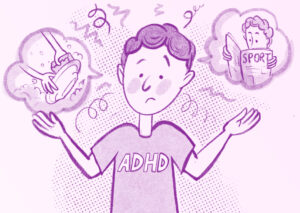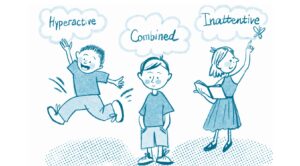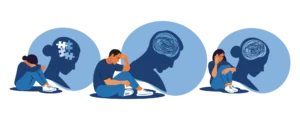Forgiveness is often misunderstood as an act of weakness or giving in. In reality, it’s one of the most powerful psychological tools for healing, peace, and emotional well-being. Holding on to anger, resentment, or past hurt may seem like a form of protection, but it actually causes prolonged suffering. Forgiveness, in contrast, is a conscious, deliberate decision to release feelings of vengeance or bitterness—regardless of whether the offender deserves it.
In this comprehensive blog, we will explore the psychology of forgiveness, why it matters, how to practice it, and the scientifically backed benefits of letting go. Whether you’re dealing with a personal betrayal, a family conflict, or long-held emotional pain, understanding the dynamics of forgiveness can help you live a healthier, more peaceful life.
Table of Contents
ToggleWhat Is Forgiveness?
Forgiveness is a voluntary internal process through which a person lets go of feelings of resentment, anger, or revenge toward someone who has caused them harm. It’s not about forgetting or excusing the wrongdoing, nor does it mean reconciling with the offender. It simply means choosing peace over prolonged pain.
Psychologists define forgiveness as a shift in thinking and emotion, moving from negative judgments to more neutral or even positive ones. This doesn’t mean approval of the act—it means acknowledging the harm while choosing not to let it define you or your emotional health.
The Psychology Of Forgiveness
Psychological research has shown that forgiveness involves both cognitive and emotional components:
1. Cognitive Reframing
This involves altering the way you interpret the offense. Rather than viewing yourself as a perpetual victim, you recognize that the other person’s behavior may reflect their own pain, ignorance, or limitations.
2. Empathy and Compassion
Many who forgive report being able to view the offender more empathetically, sometimes imagining the circumstances that led them to act that way.
3. Letting Go of Control
Often, we cling to resentment in hopes that it will hold others accountable. Forgiveness means letting go of this illusion of control and accepting that we cannot change the past.
Forgiveness vs. Justice
One of the biggest hurdles in forgiving is the fear that letting go means condoning the wrongdoing. But forgiveness is separate from justice. You can still hold someone accountable, set boundaries, or pursue legal action while choosing not to let hate rule your mind. Forgiveness is for you, not them.
Mental Health Benefits of Forgiveness
Numerous psychological studies have confirmed that forgiveness can lead to substantial mental and physical health benefits:
1. Reduced Stress and Anxiety
Letting go of resentment reduces the cortisol levels in your body, easing stress and anxiety symptoms.
2. Improved Relationships
Forgiving tendencies are linked to better relationship satisfaction and reduced conflict in interpersonal dynamics.
3. Lower Risk of Depression
Holding grudges is strongly correlated with depressive symptoms. Forgiveness alleviates emotional burdens that fuel sadness.
4. Better Sleep Quality
People who forgive sleep better. Resentment can fuel insomnia, intrusive thoughts, and disturbed dreams.
5. Enhanced Self-Esteem
When you choose to forgive, you take back control, which fosters a stronger sense of empowerment and personal worth.
Emotional Consequences of Holding On
Resentment, if left unchecked, evolves into chronic emotional suffering:
- Bitterness leads to emotional rigidity.
- Anger disrupts the ability to form new bonds.
- Hatred creates a false sense of superiority and distance from others.
- Victimhood prevents personal growth and transformation.
Clinging to pain makes it impossible to move forward. Unforgiveness becomes a mental prison, and only you hold the key.
Why Is Forgiveness So Hard?
Forgiveness can feel difficult for several reasons:
• Ego Protection
We often believe that holding onto pain keeps us safe from being hurt again.
• Fear of Losing Power
Some feel that forgiveness means giving up control or letting the other person “win.”
• Unresolved Trauma
Deep emotional wounds, especially from childhood or abusive relationships, can complicate the ability to forgive.
• Misunderstanding Forgiveness
Many people confuse forgiveness with reconciliation, forgetting, or absolving.
Steps to Practice Forgiveness
Forgiveness isn’t a single act; it’s a journey. Here are actionable steps to guide the process:
1. Acknowledge the Pain
Denying or suppressing hurt feelings can make them more powerful. Begin by recognizing your emotions.
2. Understand the Offense
What happened? Why did it hurt you? Understanding the nature and impact of the offense can help you process it.
3. Shift Perspective
Try to see the offender as a flawed human being, not a monster. This isn’t for their sake, but for yours.
4. Make a Conscious Choice to Forgive
Say it out loud or write it down: “I choose to let this go for my peace.”
5. Release the Grudge
Whenever the pain resurfaces, remind yourself of your decision to forgive.
6. Seek Professional Help
Therapists like Arpan Sarma can guide you through forgiveness work, especially in the case of trauma or deep emotional wounds.
Letting Go: The Final Act of Freedom
Forgiveness is incomplete without the ability to truly let go. That doesn’t mean forgetting the event, but rather, choosing not to let it define your identity or emotions.
Letting go is a choice you make every time the pain resurfaces. You may need to forgive more than once, and that’s okay. Healing is not linear—it’s a process of continual release.
Forgiveness and Spirituality
In many spiritual traditions—Christianity, Buddhism, Islam, Hinduism—forgiveness is seen as a virtue and a form of enlightenment. Spiritual forgiveness often involves:
- Prayers or rituals
- Meditation and reflection
- Acts of service or kindness
Whether you’re religious or not, connecting forgiveness to a larger purpose can offer peace and clarity.
Forgiveness in Therapy: How Arpan Sarma Can Help
As a licensed psychologist, Arpan Sarma uses evidence-based therapeutic methods to help individuals process pain, trauma, and relational wounds. Through therapies like CBT, Mindfulness-Based Therapy, and Narrative Therapy, clients are empowered to take control of their emotions and let go of destructive patterns.
If you’re struggling with forgiveness—whether it’s forgiving a parent, partner, friend, or even yourself—Arpan can help you explore those wounds in a safe, compassionate, and structured environment.
Final Thoughts
Forgiveness is one of the greatest gifts you can give yourself. It doesn’t erase the past but it rewrites your relationship with it. By forgiving, you unshackle your heart from emotional chains and make space for healing, peace, and growth.
Letting go doesn’t mean forgetting or condoning—it means choosing freedom over suffering. In a world full of broken relationships and emotional burdens, forgiveness is a powerful tool for transformation. And the best part? It’s always within your reach.







